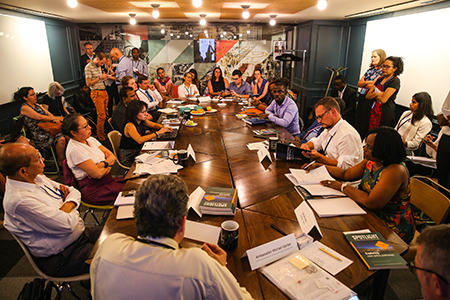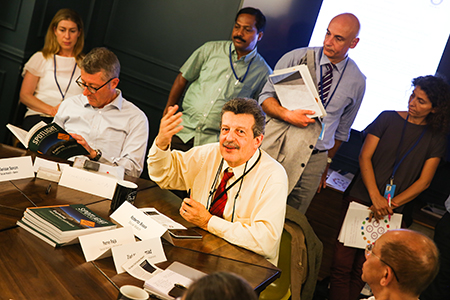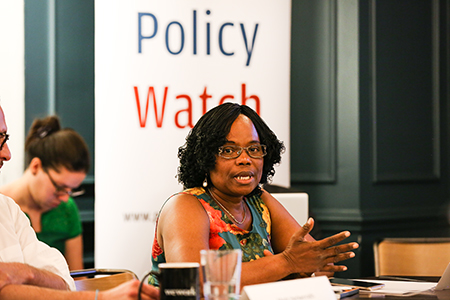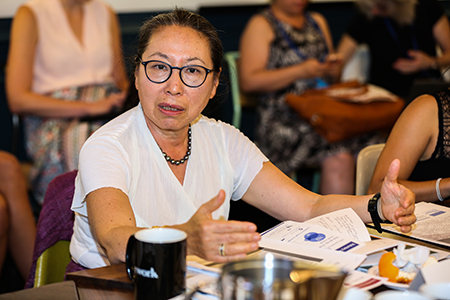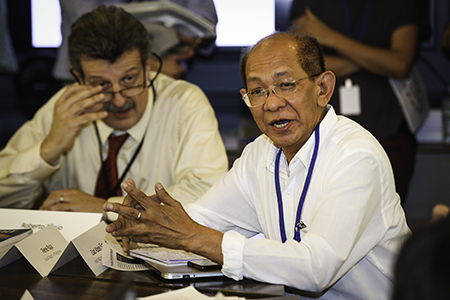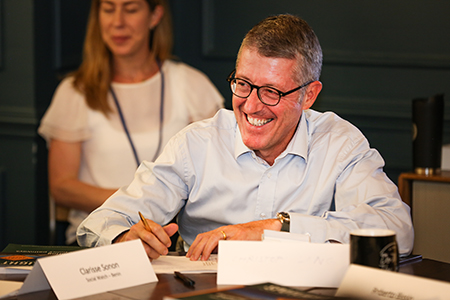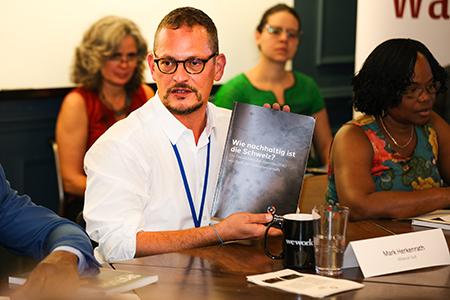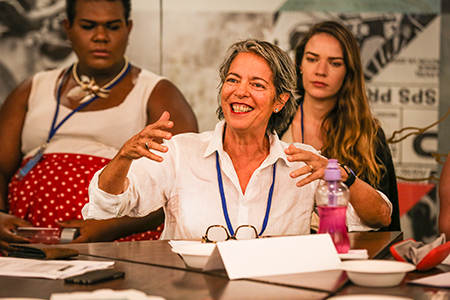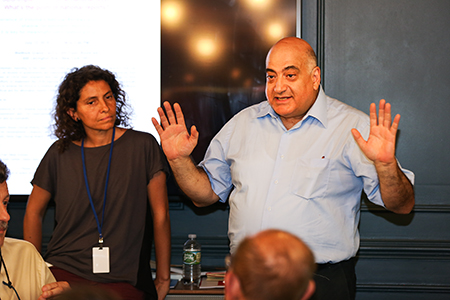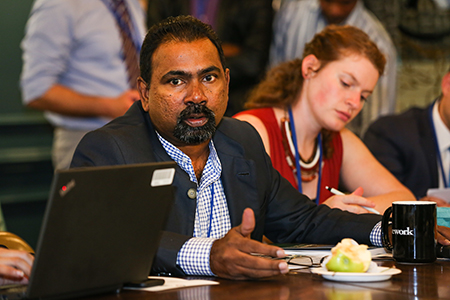SDG Implementation at National Level: What’s the Point of National Reports?
|
Source: . Published on Fri, 2018-07-13 00:00
The side event "SDG Implementation at National Level: What’s the Point of National Reports?" focused on voluntary national reports (VNRs) and parallel “shadow” or “spotlight” reports generated by civil society organizations (CSOs) on progress towards attaining the Sustainable Development Goals (SDGs). Moderator Roberto Bissio, Social Watch, asked presenters to address whether the shadow reports lead to changes and what can be learned from each other’s experiences. Blanche Sonon, Social Watch, Benin, said her government has been open to CSO input. She highlighted the need for a focus on detecting and returning government funds lost through corruption. Mark Herkenrath, Alliance Sud, outlined an effort to create a joint report, organized thematically, with input from different sectors of civil society, including human rights, women, youth, and environmental organizations. He described a joint chapter-writing exercise with the private sector, noting the final baseline report was not included in the Swiss VNR. He said CSO involvement in the VNR process does not preclude a separate spotlight report. Iara Pietricovsky de Oliveira, Instituto de Estudos Socioeconômicos, said a CSO spotlight report concluded that Brazil is going backwards on all the SDGs and that recommendations using data collected by CSO researchers and institutions were not addressed by the government. Rene Raja, Social Watch, Philippines, noted his country will present its second VNR in 2019 and highlighted aspects of its spotlight report, including on how to establish baselines for the SDGs. He emphasized the need to address inequality, education, and empowerment, and underscored engaging with local, regional and national sectors to increase solidarity. Christoph Lang, Swiss Agency for Development and Cooperation, said his country would present its VNR at this HLPF and is working with 85 indicators. He stressed: the importance of broadening civil society engagement; CSO inclusivity for better reports; and openness to improving the process. Sakiko Fukuda-Parr, New School, outlined work on review of the SDGs by the Committee on Development Policy, a subsidiary advisory body of the UN Economic and Social Council. She said the intent of the review was to nudge governments to do better and emphasized focusing on the issue of no one left behind. A CSO representative from Sri Lanka said VNRs need to be an honest stock-taking and that his country’s CSO process included trade unions, private sectors, local authorities and government offices, who were excluded from the VNR process. He highlighted: availability of data on only 46 indicators; the importance of SDG interlinkages; and the need for a data acceptance mechanism to expand the ability to include data from non-traditional sources During ensuing discussion, participants considered, inter alia: use of advocacy to organize grassroots voices; inclusion of children and youth as contributors to CSO reviews; the complementary nature of qualitative and quantitative analyses; and private sector involvement in the review process, including challenges when private sector demands are inconsistent with attainment of the SDGs. Source: IISD Reporting Services. All photos by IISD/ENB | Natalia Mroz.
|
SUSCRIBE TO OUR NEWSLETTER


